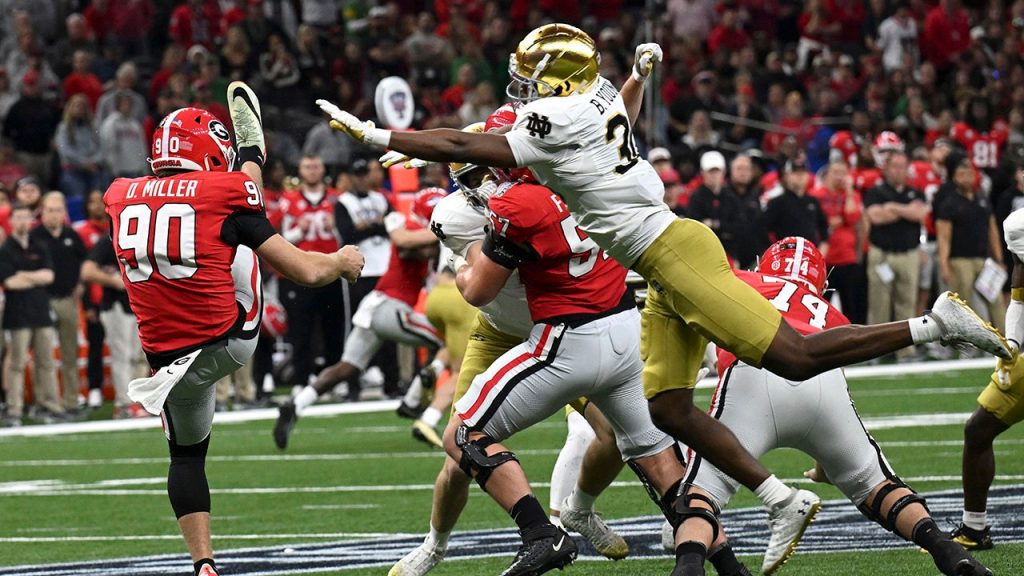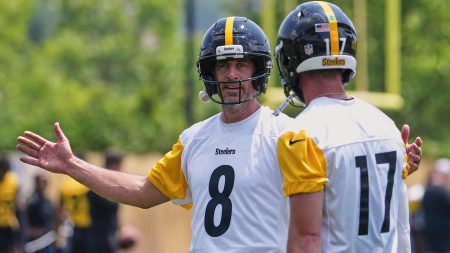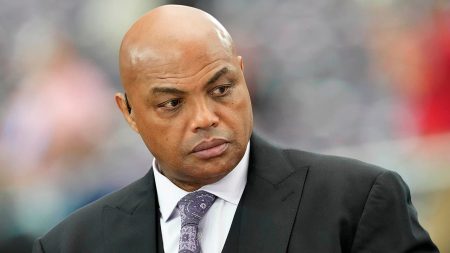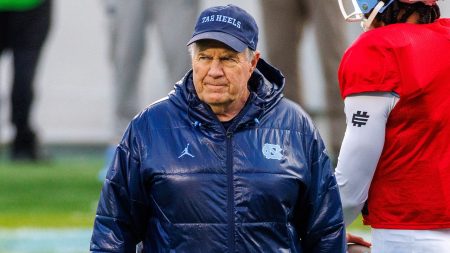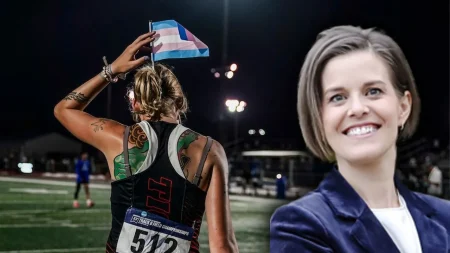The Notre Dame Fighting Irish stumbled out of the gates in their College Football Playoff quarterfinal matchup against the Georgia Bulldogs at the Sugar Bowl, a game imbued with a somber undercurrent following a recent tragedy in New Orleans. The Irish defense initiated the game with a series of miscues, incurring back-to-back penalties against freshman defensive lineman Bryce Young for running into Georgia punter Drew Miller. While the first penalty resulted in a five-yard setback, the second infraction was declined. This early sloppiness foreshadowed a challenging start for Notre Dame, setting a tone of imprecision that would plague their initial offensive efforts.
The Fighting Irish offense mirrored the defense’s struggles, failing to gain traction on their opening drive. Quarterback Riley Leonard found himself embroiled in a penalty-induced predicament, flagged for an illegal forward pass. The sequence unfolded as Leonard’s initial pass attempt was deflected by Georgia’s Mykel Williams. Upon recovering the deflected ball, Leonard attempted a second pass, which fell incomplete. This unusual double-pass play, deemed illegal, further hampered Notre Dame’s attempts to establish an offensive rhythm. The confluence of defensive penalties and offensive missteps contributed to a scoreless first quarter, marked by a palpable sense of frustration for the Irish.
The defensive stalemate continued into the first quarter, with both teams struggling to penetrate the opposing defenses. Georgia’s defensive unit effectively bottled up Notre Dame’s running game and applied consistent pressure on Leonard, limiting the Irish to a meager 24 yards of total offense. Leonard’s passing game fared no better, completing just one pass for 14 yards. This defensive dominance by both teams resulted in a scoreless first quarter, setting the stage for a closely contested and defensively oriented game.
As the second quarter commenced, both teams managed to break through the defensive gridlock, exchanging field goals. However, the offensive struggles largely persisted, with neither team able to establish a consistent offensive flow. The game remained a low-scoring affair, highlighting the defensive prowess of both squads. The shadow of the recent tragedy in New Orleans loomed large over the game, adding a poignant dimension to the on-field competition.
The Sugar Bowl, typically a celebratory occasion, was held under a cloud of grief and resilience. The postponement, necessitated by the deadly terror attack on Bourbon Street, which claimed the lives of at least 15 people and injured dozens more, transformed the game into a symbol of the city’s resolve. The presence of Louisiana’s Governor, coupled with assurances of heightened security measures at the Superdome, underscored the determination to proceed with the game while acknowledging the profound impact of the recent events. The game served as a reminder of the power of sport to offer solace and unity in the face of adversity.
Despite the challenging circumstances, both teams displayed unwavering commitment and sportsmanship. The hard-fought contest, characterized by defensive tenacity and a somber atmosphere, reflected the resilience of both the teams and the city of New Orleans. The Sugar Bowl became a poignant testament to the enduring spirit of competition and the healing power of sport in the aftermath of tragedy. The game transcended its usual significance, becoming a symbol of hope and recovery for a city grappling with unimaginable loss.




